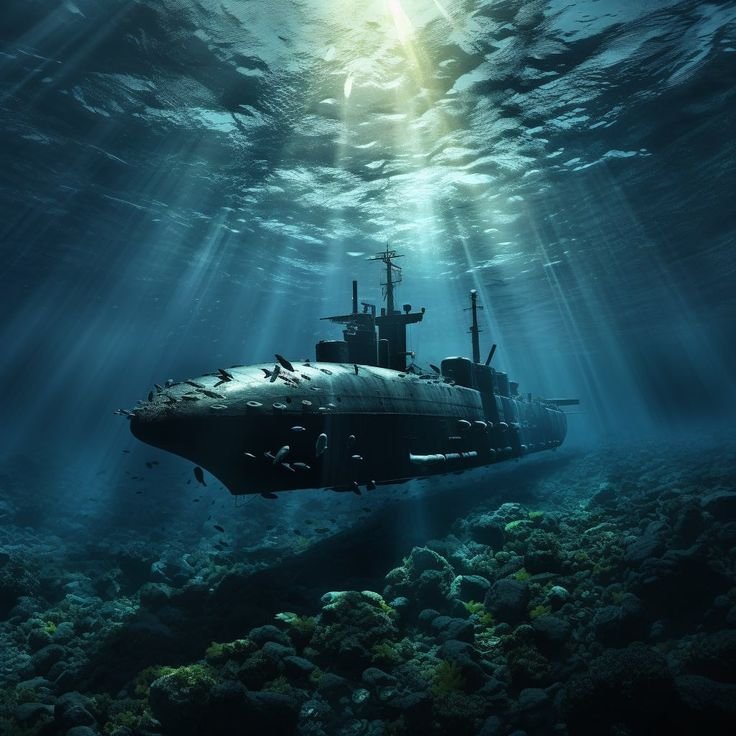Introduction – The Eternal Allure of the Sea
For centuries, the ocean has been both a mystery and a gateway to discovery. From the daring voyages of early explorers to the technologically advanced missions of today, humankind has always been drawn to the sea. Modern-day sea expeditions represent not only a continuation of this ancient tradition but also a new frontier of knowledge, fueled by science, sustainability, and curiosity.
The Legacy of Exploration
Historically, sea expeditions were centered on trade, colonization, and the discovery of new lands. Mariners like Ferdinand Magellan and James Cook set sail with limited resources, often risking their lives to chart the world. Today’s expeditions are built on this foundation but take a different path—seeking answers about marine ecosystems, global climate, and the hidden wonders of the deep.
Why We Still Sail Into the Unknown
Despite centuries of exploration, more than 80% of the world’s oceans remain unmapped and unexplored. This fact alone reveals how much mystery lies beneath the waves. Scientists embark on modern expeditions to better understand the ocean’s role in regulating Earth’s climate, discovering new species, and studying geological features like underwater volcanoes and trenches.
Technological Advancements Driving Exploration
Modern expeditions are powered by groundbreaking technology. Remotely Operated Vehicles (ROVs), Autonomous Underwater Vehicles (AUVs), and deep-sea submersibles allow humans to reach places once deemed impossible. High-resolution sonar mapping, satellite imaging, and AI-driven data collection have revolutionized oceanography, offering a clearer picture of the seafloor and its hidden life forms.
Exploring the Deep – A Frontier of Life
One of the most fascinating aspects of modern expeditions is the discovery of deep-sea ecosystems. Creatures thriving near hydrothermal vents, bioluminescent organisms illuminating the abyss, and vast coral gardens thousands of meters below the surface have redefined our understanding of life’s adaptability. Each expedition reveals species and habitats never seen before, reminding us of the ocean’s infinite mysteries.
Uncovering the Secrets of Climate Change
Sea expeditions today are not just about exploration but also about survival. Oceans act as Earth’s climate regulators, absorbing carbon dioxide and heat. Expeditions study melting polar ice, shifting ocean currents, and acidification to predict future climate scenarios. Research vessels stationed in the Arctic and Antarctic collect vital data that helps humanity prepare for rising seas and extreme weather events.
Marine Archaeology – Tracing Human History
Beyond natural wonders, expeditions also uncover sunken ships, lost civilizations, and forgotten trade routes. Marine archaeologists use advanced sonar and imaging technology to locate and study wrecks like the Titanic or ancient Roman vessels. Each discovery connects us to our past, shedding light on the relationship between human history and the sea.
Sustainability and Conservation in Expeditions
Modern exploration carries with it a responsibility to protect what is found. Unlike the exploitative missions of the past, today’s expeditions are guided by principles of sustainability. Research teams work to understand ecosystems without disturbing them, while governments and organizations use expedition data to establish Marine Protected Areas (MPAs).
International Collaborations at Sea
Modern-day expeditions are rarely undertaken by a single nation. They are often collaborative, involving multiple countries, universities, and research institutes. This spirit of cooperation not only pools resources and expertise but also emphasizes that the ocean is a shared heritage of humanity, demanding collective stewardship.
The Role of Citizen Science
A unique aspect of modern exploration is the involvement of ordinary people. Programs now allow divers, sailors, and even tourists to contribute to ocean research by collecting samples, reporting species sightings, or assisting in coral restoration projects. This democratization of exploration fosters global awareness and engagement.
Challenges of Modern Expeditions
While technology has advanced, challenges remain. Harsh weather, extreme depths, and high-pressure environments make exploration dangerous and costly. Funding is also a constant hurdle, as research requires expensive vessels, specialized crews, and long-term commitments. Despite these difficulties, the thirst for discovery drives humanity forward.
Unveiling the Blue Economy
Modern expeditions also tie into the growing concept of the “blue economy,” which explores sustainable ways to harness ocean resources for economic growth. Expeditions identify new fishing grounds, study renewable energy sources like tidal and wave power, and investigate pharmaceutical potential from marine organisms—all while aiming to balance development with conservation.
Cultural Impact of Exploration
Beyond science, modern expeditions capture the imagination of people around the world. Documentaries, live-streamed dives, and interactive digital platforms bring the excitement of discovery to millions. They remind us that while Earth’s surface may seem familiar, its oceans remain an untamed wilderness full of stories waiting to be told.
Case Studies of Modern Expeditions
Several recent expeditions highlight the scope of modern exploration:
- The Schmidt Ocean Institute has mapped deep-sea ecosystems in previously unknown regions of the Pacific.
- The Tara Oceans Project has studied microscopic life to understand the ocean’s role in sustaining biodiversity.
- Arctic Research Voyages have monitored melting ice and its impact on global sea levels.
Each of these expeditions contributes valuable knowledge that shapes policy, conservation, and our collective future.
The Future of Sea Exploration
Looking ahead, ocean exploration will become even more innovative. AI-powered underwater drones, robotic swarms, and advanced DNA sequencing will uncover life forms invisible to the naked eye. With the growing urgency of climate change, expeditions will play a critical role in shaping global responses to rising seas and ecological shifts.
Conclusion – Sailing Into Tomorrow
Modern-day sea expeditions are not just scientific journeys; they are humanity’s pledge to understand and protect the last great frontier of Earth. They blend tradition with technology, curiosity with responsibility, and discovery with preservation. As we sail into the unknown, one truth remains clear: the ocean holds answers not only to its mysteries but also to the future of life on our planet.


